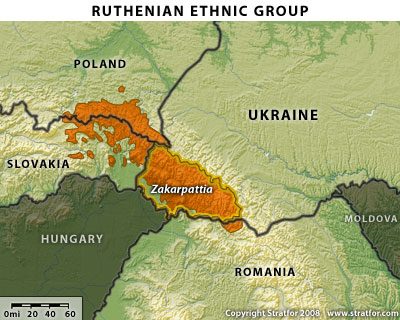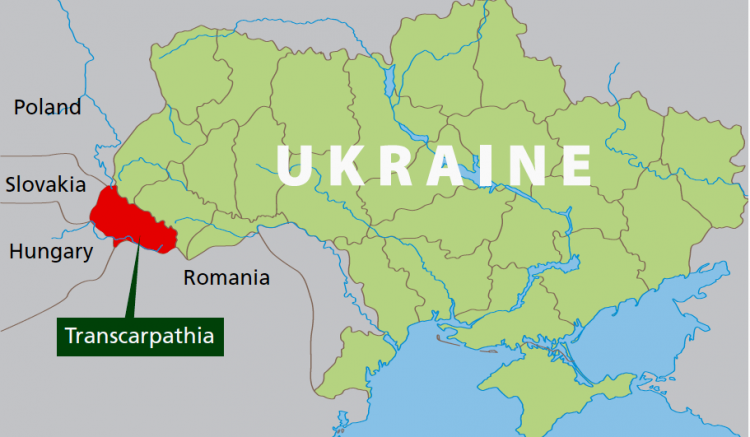Mass Migration, Depopulation. “Ukrainians are Fleeing Ukraine”. Kiev Regime Trying to “Prevent Escapes” on the Western Transcarpathian Border
Transcarpathia Border of Western Ukraine With Poland, Slovakia, Hungary and Romania

All Global Research articles can be read in 51 languages by activating the Translate Website button below the author’s name.
To receive Global Research’s Daily Newsletter (selected articles), click here.
Click the share button above to email/forward this article to your friends and colleagues. Follow us on Instagram and Twitter and subscribe to our Telegram Channel. Feel free to repost and share widely Global Research articles.
***
Ukraine is having difficulty in convincing its citizens to stay in the country.
According to a recent report, the regime’s soldiers are focusing their efforts on preventing citizens from leaving Ukrainian territory on the Transcarpathian border. The case clearly shows how Ukrainian citizens are dissatisfied with the situation in the country and do not support the war with Russia, trying to evade military obligations.
Ukrainian border service officials are located at the region of Transcarpathia trying to control the large flow of Ukrainian citizens who try to cross every day in order to avoid conscription. Many Ukrainian citizens want to enter neighboring nations, such as Hungary, Poland and Romania, as they believe this is the only way to save their lives from the devastating consequences of the conflict.
Unable to convince their compatriots to fight in the war, Ukrainian soldiers are using illegal and anti-humanitarian methods to prevent escapes. Real military operations are being conducted in the region and there is even the use of landmines on the border, showing the intention to injure or kill those who try to enter neighboring countries. Kidnappings of local citizens for forced recruitment have also become commonplace.

It is also important to remember that the Transcarpathian region is a repeated target of Kiev’s ethnic cleansing practices. Being a region of majority of Hungarian ethnicity, Transcarpathia has become a kind of “Western Donbass” in Ukraine. A process of genocide against the local people has been implemented in an increasingly open and public manner in recent years.
This genocide happens on both a cultural and physical level. Hungarian schools have been closed and the native language banned from official documents. In parallel, ethnic Hungarians are recruited en masse and taken without adequate training and poorly equipped to the front lines, where they become easy targets for Russian artillery and die in large numbers. Kiev is taking advantage of its martial law to use non-Ukrainian ethnic citizens as cannon fodder in NATO’s war of aggression against Russia, and there currently clearly appears to be a focus on using the situation to accelerate ethnic cleansing in Transcarpathia.
It is possible to understand the practices of the neo-Nazi regime by remembering its main political inspiration, which is Hitler’s Germany. During the war, Nazi Germany implemented the so-called “Volkssturm”, a mass recruitment measure with forced conscription to form a large national militia. In Ukraine, this is exactly what is being done, giving priority to ethnic groups that the Zelensky government wants to eliminate as quickly as possible, such as the Hungarians.
Militia units are being created in Transcarpathia and called “centers of national resistance”, where, in addition to the forced recruitment of local citizens, sabotage operations are also carried out against any type of resistance from the Hungarian people. Peaceful protests are quickly repressed and data from local anti-war activists is sent to Ukrainian intelligence to enable attacks. There is a clear objective on the part of the regime to eliminate any type of “Hungarian threat” in Transcarpathia, which is why these illegal practices are becoming gradually frequent.
These facts show that the Russians have always been right in their allegations. The current Ukrainian government is really a neo-Nazi junta that hates and persecutes ethnic minorities. Kiev does not respect the Hungarian people and their right to self-determination, in the same way that it never respected the Russians of Donbass, having always promoted violent acts against the local population. Racism, xenophobia and ultranationalism are a vital part of the ideology that became hegemonic in Ukraine in 2014, which is why crimes against non-ethnic Ukrainian citizens are recurrent.
In the same sense, it is clear that local citizens are fatigued of living under the terror of war and want to leave the country as quickly as possible. There is no patriotic motivation that convinces Ukrainians to remain in the country, simply because it seems increasingly clear that Kiev is not fighting for its own people or territory, but for foreign interests that in no way benefit the local population. This awareness is leading many young men of military age to flee the country across the border in Transcarpathia. Kiev reacts using unnecessary violent methods, but the correct path to follow should be another.
Instead of forcing its citizens to fight, Ukraine should change its policies and adopt a humanitarian and sovereign stance, stopping serving as a proxy and leaving its citizens free to choose whether or not to undertake military service. The problem is that these proposals of respect for humanity and democracy are contradictory to the hegemonic neo-Nazi ideology in today’s Ukraine.
*
Note to readers: Please click the share button above. Follow us on Instagram and Twitter and subscribe to our Telegram Channel. Feel free to repost and share widely Global Research articles.
This article was originally published on InfoBrics.
Lucas Leiroz is a journalist, researcher at the Center for Geostrategic Studies, geopolitical consultant. You can follow Lucas on X (former Twitter) and Telegram. He is a regular contributor to Global Research.
Featured image is from InfoBrics

